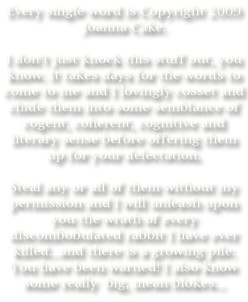Times Letter Reunites Wartime Couple
 I posted this story recently because it really touched me.
I posted this story recently because it really touched me.
Last weekend, they published an update article, which I thought some of you might enjoy.
The last time that Harold Pettinger saw Dorothy Eastwood was on a station platform in Cape Town 68 years ago, the tearful end of a wartime romance that was always destined to end in such a parting.
Two young people thrown together by fate — he was a 20-year-old officer heading off to fight in the Middle East, she was an 18-year-old girl on her way to a new life in what was then Rhodesia. They had met on board a steamer on the voyage from London, fallen in love and then gone their separate ways, knowing that they would probably never see each other again.
The only memento that Mr Pettinger had was the telegram she sent him shortly after they parted. “All my love. Best of luck, Dorothy.”
For more than half a century they spent their lives thousands of miles apart, he in England, she (now Mrs Crombie) in Zimbabwe. But as fate drew them together on the liner RMS Ceramic, they have now been reunited — thanks to a letter in The Times.
Last November Mr Pettinger went to the Field of Remembrance at Westminster Abbey with his son, Martin. Twice he took a cab that day, and twice the drivers refused to take money from an old soldier with so many medals. One of them said that he owed Mr Pettinger more than any fare. Martin Pettinger described their kindness in a letter to The Times, which was reprinted in The Week.
Five thousand miles away in Zimbabwe, an elderly widow picked up a copy of The Week, saw the letter and noticed Martin Pettinger’s name at the bottom. “The name just came up and hit me,” Mrs Crombie, now 87, said. “I thought, ‘This has got to be his son’.”
Although she had made her own life in Zimbabwe — she married a pilot, and had three children — she had never forgotten Mr Pettinger. “I often wondered how he was doing,” she said. “Every now and then something would happen — an old tune you heard on the boat would be played and you would go back to the old Ceramic days. The big one was Blue Moon — that was our tune.”
Their meeting had been a dramatic one. Mrs Crombie, who was on her way to live with an uncle, was sharing a cabin with her sister, and a young mother with a son. “My sister was seasick and this other woman, who was nearest the door, was in a bad way, too. A drunken sailor burst into our cabin and tried to get into bed with her.
“I knew there were a couple of strapping Army officers in the cabin opposite, so I banged on their door and said, ‘Can you help?’ Harold came bursting out and dispatched the fellow forthwith.”
It was the first time that they had talked, but from there, the relationship blossomed. “He was quite a dashing young fellow,” Mrs Crombie said.
“She was a nice girl,” said Mr Pettinger, who was a second lieutenant with the York and Lancaster Regiment. “I always liked blondes. She was always smiling. She was a lovely girl. Who could not be attracted?”
Small memories survive: playing bridge and housey-housey on board, going up Table Mountain, having dinner together at an hotel in Cape Town.
Then, their parting. “I was a miserable heap,” Mrs Crombie said. “That is why I sent him a telegram from Kimberley — I was on my way up to Rhodesia at that stage. When the war was on, everything was so uncertain. We did keep in touch. I think that we imagined that we might see each other again after the war.”
“I was very sorry,” Mr Pettinger, now 89, said. “But you had to be practical. I was on the way to the Middle East. There was nothing I could do. I just had to say a fond farewell, hoping I could see her again but knowing that it was pretty remote.”
They kept in touch for a while. But Mrs Crombie stayed in Rhodesia, while Mr Pettinger, who won the Military Cross at Tobruk, returned to England, married, and spent his career working for Otis, the lift company.
Two lives went by. Then, the letter in The Times. Mrs Crombie tried to track down Martin Pettinger, but failed. This year she took advantage of the Government’s repatriation scheme to live near East Grinstead in West Sussex, to be near her son. She made another attempt to track down Martin Pettinger, this time successfully. “I wanted to phone Harold,” Mrs Crombie said. “But Martin said he had to phone him first. He said, ‘He’s going to have a heart attack’.”
After discovering that Mr Pettinger was living only 33 miles away, in Cobham in Surrey, they met a fortnight ago. They met at 10am and did not stop talking until Mrs Crombie left at 7pm. “I was delighted,” said Mr Pettinger, whose wife died 21 years ago. “But, if we passed in the street, neither of us would have known each other.”
“I was amazed that it was quite comfortable from the word go,” said Mrs Crombie. “It did not take long to get back to where we were.”
And, yes, now what? “We are getting a bit ancient,” said Mrs Crombie. “We are just enjoying what is left. It is nice just to coast along and see each other from time to time.”
“Take it steady, old chap,” Mr Pettinger said. “There’s not much life left in this old dog.”
But somehow there seems to be a bit more than there was before Mrs Crombie turned up again.
I just think it gives us all hope for the future.
























3 comments:
Heart warming story, thanks for it its cheered me up.
When love comes, it knows no age or boundaries.
Lovely story.
Very inspiring and hopeful.
That is a very cute and good story. Ah, old love, I do wonder what happened to one of my early girl friends...but maybe it is best not to know.
Thanks for sharing the story.
Post a Comment